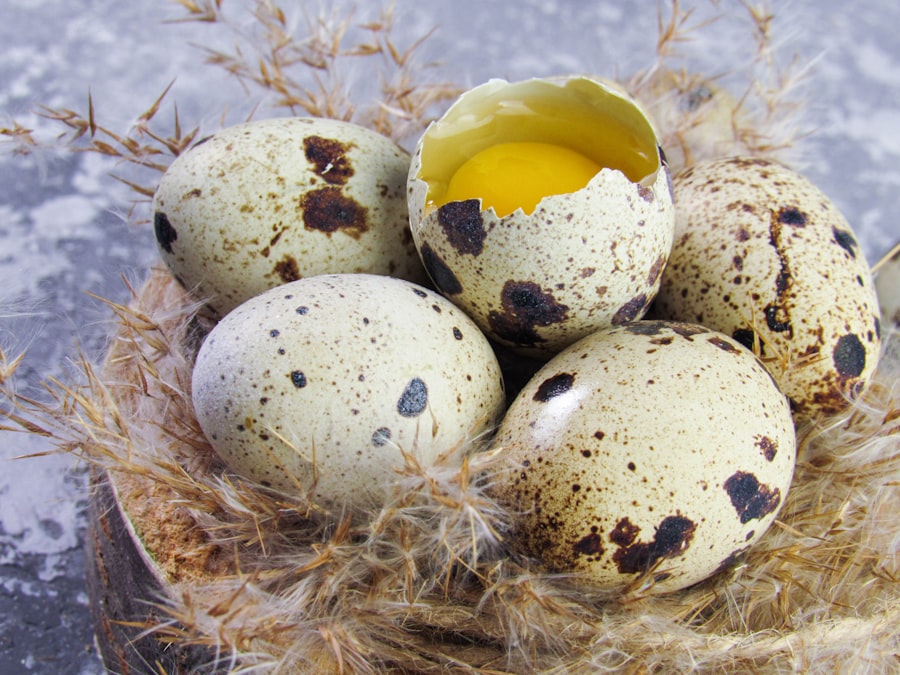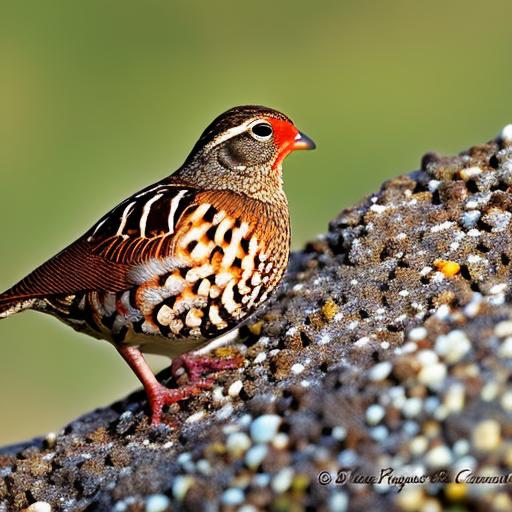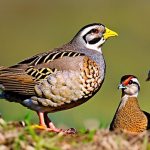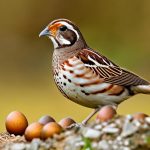Quail keeping in Australia has gained popularity in recent years due to the increasing demand for quail eggs and meat. Before starting your quail keeping journey, it’s important to familiarize yourself with the basic requirements and considerations. First and foremost, you’ll need to decide on the scale of your quail operation. Whether you’re planning to keep quail for personal consumption or for commercial purposes, it’s essential to have a clear understanding of your goals and expectations.
Next, you’ll need to consider the space and resources available to you. Quail can be kept in a relatively small area compared to other poultry, making them a suitable option for backyard or urban farming. However, it’s important to ensure that you have enough space for the number of quail you plan to keep, as overcrowding can lead to stress and health issues. Additionally, you’ll need to invest in the necessary equipment and infrastructure, such as brooders, feeders, waterers, and suitable housing. Lastly, it’s crucial to familiarize yourself with the legal and regulatory requirements for keeping quail in your area. Different states and territories in Australia may have specific regulations regarding quail keeping, so be sure to do your research and obtain any necessary permits or licenses before getting started.
Once you have a clear understanding of your goals, resources, and legal requirements, you can begin the exciting journey of quail keeping in Australia. With the right knowledge and preparation, you can enjoy the benefits of raising these unique and productive birds.
Key Takeaways
- Quail keeping in Australia requires proper knowledge and understanding of the specific requirements and regulations.
- When choosing a quail breed for egg production, consider factors such as egg size, laying frequency, and temperament.
- Housing and enclosure requirements for quail include adequate space, protection from predators, and proper ventilation.
- Feeding and nutrition for quail egg production should include a balanced diet of commercial feed, greens, and calcium supplements.
- Health and disease management for quail involves regular monitoring, vaccination, and proper sanitation practices.
Choosing the Right Quail Breed for Egg Production
When it comes to quail keeping for egg production, choosing the right breed is crucial for success. There are several quail breeds commonly used for egg production, each with its own unique characteristics and advantages. One popular breed for egg production is the Coturnix quail, also known as the Japanese quail. Coturnix quail are prized for their high egg production, with some hens laying up to 300 eggs per year. They are also known for their docile nature and adaptability to various climates, making them a popular choice for both backyard and commercial egg production.
Another popular breed for egg production is the Bobwhite quail, which is native to North America but has been successfully raised in Australia for its eggs. Bobwhite quail are known for their flavorful eggs and relatively larger size compared to other quail breeds. They are also valued for their hardiness and ability to thrive in a variety of environments. Other quail breeds that are suitable for egg production include the Pharaoh quail and the Tuxedo quail, each with its own unique characteristics and suitability for different production systems.
When choosing a quail breed for egg production, it’s important to consider factors such as egg production rate, temperament, size, and adaptability to your local climate. By selecting the right breed for your specific needs and resources, you can set yourself up for a successful quail egg production venture in Australia.
Housing and Enclosure Requirements for Quail
Proper housing and enclosure are essential for the health and well-being of quail in an egg production setting. When it comes to housing quail, there are several key considerations to keep in mind. Firstly, it’s important to provide adequate space for your quail to move around freely and exhibit natural behaviors. Overcrowding can lead to stress, aggression, and reduced egg production, so it’s crucial to provide enough space for your birds.
Additionally, the housing should be well-ventilated to ensure good air quality and prevent respiratory issues. Proper ventilation is especially important in hot and humid climates, as quail are sensitive to high temperatures and humidity. The housing should also provide protection from predators such as rats, snakes, and birds of prey, as well as shelter from extreme weather conditions.
In terms of enclosure requirements, quail are ground-dwelling birds that require access to a suitable substrate for dust bathing and scratching. Providing a substrate such as sand or peat moss will allow your quail to engage in natural behaviors and maintain good feather condition. It’s also important to provide nesting boxes or areas where your quail can lay their eggs in a quiet and secluded environment.
By ensuring that your quail housing and enclosure meet these requirements, you can create a safe and comfortable environment for your birds to thrive and produce high-quality eggs.
Feeding and Nutrition for Quail Egg Production
Proper feeding and nutrition are essential for maximizing egg production and maintaining the health of your quail flock. Quail have specific dietary requirements that must be met in order to support optimal egg production. A high-quality commercial feed formulated specifically for laying quail is recommended as the primary source of nutrition. These feeds are typically high in protein (around 20-25%) and contain essential vitamins and minerals such as calcium, phosphorus, and vitamin D3 to support strong eggshell formation and overall health.
In addition to commercial feed, it’s important to provide access to clean water at all times. Quail have a high water requirement, especially during peak egg production, so it’s crucial to ensure that they have access to an adequate supply of fresh water. Supplemental sources of calcium, such as crushed oyster shells or limestone grit, should also be provided to support strong eggshell formation.
In addition to a balanced diet, it’s important to monitor the body condition of your quail and adjust feeding practices accordingly. Overfeeding can lead to obesity and reduced egg production, while underfeeding can result in poor egg quality and health issues. By providing a balanced diet tailored to the specific needs of laying quail and monitoring their condition regularly, you can support optimal egg production and overall flock health.
Health and Disease Management for Quail
Maintaining the health of your quail flock is essential for successful egg production. Like all animals, quail are susceptible to a range of health issues and diseases that can impact their well-being and productivity. To ensure the health of your quail flock, it’s important to implement a proactive approach to disease management and biosecurity practices.
One key aspect of disease management is maintaining a clean and hygienic environment for your quail. Regularly cleaning and disinfecting the housing and equipment can help prevent the spread of pathogens and reduce the risk of disease outbreaks. It’s also important to practice good biosecurity measures, such as limiting visitor access to the quail area and quarantining new birds before introducing them to the flock.
In addition to good management practices, it’s important to monitor the health of your quail regularly and seek veterinary advice if any signs of illness or disease are observed. Common health issues in quail include respiratory infections, parasitic infestations, and reproductive disorders. By being vigilant about monitoring the health of your flock and seeking prompt veterinary care when needed, you can minimize the impact of diseases on your quail egg production operation.
Collecting and Storing Quail Eggs

Once your quail begin laying eggs, it’s important to establish proper procedures for collecting and storing the eggs to maintain their quality and freshness. Quail eggs are typically laid in the early morning hours, so it’s important to check the nesting boxes or areas regularly throughout the day to collect eggs promptly. Leaving eggs in the nest for an extended period can lead to soiling or breakage, reducing their quality.
After collecting the eggs, it’s important to handle them with care to prevent damage to the delicate shells. Quail eggs should be stored in a cool and dry environment with consistent temperature and humidity levels. Ideally, they should be stored at a temperature of around 50-55°F (10-13°C) with a relative humidity of 70-80%. Storing quail eggs at these conditions can help prolong their shelf life and maintain their quality.
When it comes to storing quail eggs long-term, it’s important to rotate them regularly to ensure that older eggs are used first. Quail eggs can typically be stored for up to 6 weeks without significant loss of quality if stored properly. By establishing proper procedures for collecting and storing quail eggs, you can ensure that they maintain their freshness and quality for consumption or sale.
Legal and Regulatory Considerations for Keeping Quail in Australia
Before embarking on a quail keeping venture in Australia, it’s important to familiarize yourself with the legal and regulatory considerations that may apply to your operation. Different states and territories in Australia may have specific regulations regarding the keeping of quail, so it’s crucial to do your research and ensure compliance with any relevant laws or requirements.
One key consideration is obtaining any necessary permits or licenses required for keeping quail in your area. Some states may require individuals or businesses keeping quail for commercial purposes to obtain a poultry farming license or permit. Additionally, there may be specific regulations regarding biosecurity measures, disease reporting requirements, or zoning restrictions that apply to quail keeping operations.
It’s also important to be aware of any animal welfare standards or guidelines that may apply to quail keeping in Australia. Ensuring that your quail are provided with appropriate housing, nutrition, and care is essential not only for their well-being but also for compliance with animal welfare regulations.
By familiarizing yourself with the legal and regulatory considerations for keeping quail in Australia, you can ensure that your operation is conducted in accordance with applicable laws and requirements. This can help prevent potential legal issues or penalties while promoting responsible and sustainable quail keeping practices in Australia.
In conclusion, getting started with quail keeping in Australia involves careful consideration of various factors such as goals, resources, legal requirements, breed selection, housing needs, nutrition management, disease prevention strategies, egg collection procedures, storage methods, legal compliance measures among others. By taking these factors into account and implementing best practices throughout your quail keeping journey, you can set yourself up for success in raising healthy birds and producing high-quality eggs whether for personal consumption or commercial purposes in Australia.
If you’re interested in keeping quail for eggs in Australia, you might also want to check out Poultry Wizard’s article on “Where to Put Chicken Coop” for valuable insights on creating the ideal environment for your poultry. This informative piece offers practical tips and considerations for setting up a comfortable and functional space for your chickens, which can also be applied to housing quail. For more expert advice on poultry care and breeding, visit PoultryWizard.com.
FAQs
What are the benefits of keeping quail for eggs in Australia?
Quail eggs are considered a delicacy and are in high demand in Australia. Quail are also relatively easy to care for and require less space compared to chickens, making them a popular choice for urban and suburban backyard egg production.
What do quail need to thrive in Australia?
Quail require a secure and predator-proof enclosure, access to clean water, a balanced diet, and protection from extreme weather conditions. They also need a suitable nesting area to lay their eggs.
What is the average egg production of quail in Australia?
Quail are prolific layers, with some breeds capable of laying up to 300 eggs per year. However, the average egg production can vary depending on factors such as breed, age, and environmental conditions.
What are the legal requirements for keeping quail for eggs in Australia?
In Australia, the regulations for keeping quail vary by state and territory. It is important to check with local authorities regarding any permits or licenses required for keeping quail. Additionally, quail must be sourced from reputable and licensed breeders to ensure compliance with biosecurity and animal welfare standards.
What are some common health issues for quail in Australia?
Common health issues for quail in Australia include respiratory infections, parasites, and nutritional deficiencies. It is important to provide a clean and well-ventilated environment, as well as a balanced diet, to prevent these health issues. Regular monitoring and veterinary care are also essential for maintaining the health of quail.
Meet Walter, the feathered-friend fanatic of Florida! Nestled in the sunshine state, Walter struts through life with his feathered companions, clucking his way to happiness. With a coop that’s fancier than a five-star hotel, he’s the Don Juan of the chicken world. When he’s not teaching his hens to do the cha-cha, you’ll find him in a heated debate with his prized rooster, Sir Clucks-a-Lot. Walter’s poultry passion is no yolk; he’s the sunny-side-up guy you never knew you needed in your flock of friends!







